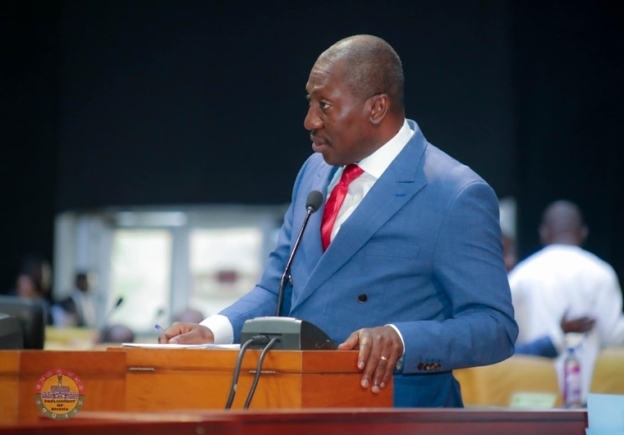Alexander Afenyo-Markin, Co-Chair of Parliament’s Appointments Committee, defended his extensive questioning of ministerial nominees during the ongoing vetting process. He asserted that providing ranking members with unlimited questioning opportunities is a standard practice dating back to 1993, questioning why this established procedure is now being challenged during his tenure. Afenyo-Markin refuted accusations of deliberately delaying the process, emphasizing that his questioning time varies depending on the nominee and citing the Health Minister-designate’s vetting, which lasted only 30 minutes. This contrasts sharply with the three-hour grilling of the Communications Minister-designate, Samuel Nartey George, which prompted interventions to curtail the questioning.
Afenyo-Markin justified his approach by highlighting the nominees’ conduct as a determining factor in the length of his questioning. He argued that nominees displaying arrogance, partisanship, disrespect, deception, or dishonesty warrant more thorough scrutiny. Conversely, nominees who demonstrate preparedness, knowledge, and respect are treated with reciprocal brevity. He stressed that nominees should understand the public nature of their roles and the importance of appropriate conduct. The Effutu MP condemned behaviors such as insulting the Chief Justice and former President, arguing that such actions merit extensive questioning rather than swift approval.
Afenyo-Markin cautioned the Appointments Committee Chairman, Bernard Ahiafor, against succumbing to pressure from what he termed “extremists” urging him to assert his authority, suggesting that such actions stem from a perceived weakness. In contrast, Afenyo-Markin commended Majority Leader Mahama Ayariga for his leadership, diplomacy, and transparency in managing the parliamentary proceedings. He praised Ayariga’s adept handling of a chaotic situation that arose over disagreements regarding the number of nominees to be vetted late one evening. This commendation underscores Afenyo-Markin’s appreciation for Ayariga’s skillful navigation of parliamentary tensions.
Afenyo-Markin’s strong stance extended to a warning directed at Majority Chief Whip Rockson-Nelson Dafeamekpor. He criticized Dafeamekpor’s behavior, characterizing it as bullying and disruptive to the proceedings. Afenyo-Markin described Dafeamekpor’s actions as shouting, yelling, undermining the authority of the chairman and majority leader, and disrupting proceedings. He argued that a Chief Whip’s role necessitates negotiation and diplomacy, not combative behavior. He suggested that Dafeamekpor’s conduct, while potentially effective in opposition, is unsuitable for a governing party and urged President Mahama to reconsider Dafeamekpor’s appointment as Majority Chief Whip.
The ongoing vetting process, marked by Afenyo-Markin’s rigorous questioning, underscores underlying tensions within the parliament. His defense based on established practices clashes with concerns over excessive scrutiny and potential delays. His comments also highlight the importance of nominee conduct during the vetting process. The dynamic interplay between Afenyo-Markin, Ahiafor, Ayariga, and Dafeamekpor further reveals the complex power dynamics and negotiations shaping the current political landscape. The varied approaches to leadership and parliamentary conduct within the majority party itself demonstrate the challenges of maintaining unity and effectiveness in a diverse political body.
Afenyo-Markin’s pointed remarks raise questions about the balance between thorough vetting and efficient governance. His emphasis on nominees’ conduct suggests a broader debate about the qualities expected of public officials. While some may view his extensive questioning as necessary accountability, others may perceive it as obstructive. The tensions within the Appointments Committee reflect the broader political climate and the ongoing negotiations between the majority and minority parties. This intricate interplay of personalities and procedures underscores the challenges of navigating the parliamentary process in a complex and dynamic political environment. The ongoing vetting process, with its debates over procedure and conduct, serves as a microcosm of the broader political landscape and the ongoing negotiations shaping the future of governance.














